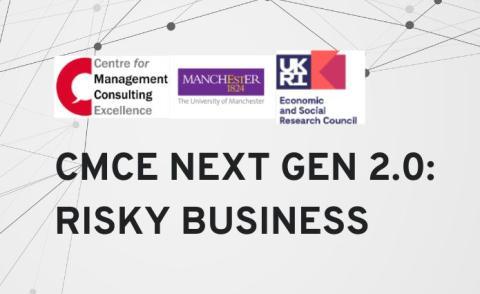Can You Be Rational?
At the end of May we hosted the third in our series of workshops exploring a few of the key concepts of behavioural economics. In particular, this session focused on bounded rationality, the idea that despite our efforts to act rationally, the limitations of what we know inevitably constrain the decisions we make.
Despite our best efforts to gather data and insights on a specific topic so that we can make informed choices, uncertainty is part of all our day-to-day decisions on both a personal and professional level. Even when we are convinced to know enough about a certain topic or situation, we often forget that our knowledge and opinion is deeply influenced by our education, previous experience, and training. During the workshop, we reflected on how this shapes our responses to risks and opportunities and has an impact on the way in which we analyse and use the information available to us.
Our main speaker for the session was Peter Knight, a professor of American Studies at the University of Manchester, with specialist expertise in cultural approaches to economics and finance, and conspiracy theories in American history. As he explained when he spoke about the role of conspiracy theories (a concept originally coined by the twentieth-century philosopher Karl Popper) in the way individuals and organisations make decisions, "conspiracy theories used to be harmless fun, but now misinformation and disinformation threaten to undermine trust in impartial media, objective science and even democracy itself". He also questioned why, if most of the theories make little sense, many people continue not only to read sources of inaccurate - and often completely false – information, but also to be irrationally and emotionally invested in them.
During his presentation Peter provided an overview of many different factors that need to be taken into consideration when evaluating our irrational decisions, and which role they play in short and long term decisions. Other elements like individual and group demographics also need to be considered, with society factors usually being the most telling. Peter also highlighted the importance of social media and other new tools of generating and accessing information in the way we formulate an opinion or make a decision in response to a specific phenomenon or a specific challenge. Interestingly, the presentation also touched on how the rationality of a certain belief changes in time and context. As a result, we should avoid expressing a judgement on past irrational phenomena and decisions, purely based on our current convictions and knowledge.
Our panel experts for the evening were David Booth, Director at IXQ Consulting Limited, with more than 25 years of experience helping some of the UK’s leading organisations develop and implement their strategies, and Collette Stone, Director of Insights & Options, an independent management consultancy focused on helping individuals and teams to find their voice, direction and purpose across the public, private and charity sectors. During the discussion, our panellists spoke about “manias” that have or had a radical impact on a business or industry, even though they turned out not to be “true” and in a situation where such a “mania” or a “myth” has taken hold in a company’s thinking, how do leaders and organisations go about changing that.
The focus of the breakout room section of the workshop was to encourage participants to reflect on how and why we come to trust certain sources of information and what the implications of this are when making decisions. Reproducing a simplification of real-life situations, the attendees were asked to think about how people, when faced with a high volume of information and little time at their disposal to review it, select the first news source to look at and why. Usually, individuals are drawn towards the sources that they know and trust already or that they consider the most reliable for that specific topic. In addition, people often try to link information across multiple news sources because they see this as a sign of its trustworthiness; however, this might not always be the case, on the contrary it could be a sign of “conspiracy” or “myth making”.
If you would like to learn more about this topic, you can also watch the video of the session and find further recommended reading below.
Peter Knight has suggested the following reading material:
Conspiracy Loops: From distrust to conspiracy to culture wars, Demos report, April 2024
Expert guide to conspiracy theories: introducing a new six-part podcast series from theconversation.com
Suspicious Minds: Why We Believe Conspiracy Theories (2015) by Rob Brotherton
The Nature of Conspiracy Theories (2020) by Michael Butter
Doppelganger. A Trip Into the Mirror World (2023) by Naomi Klein
